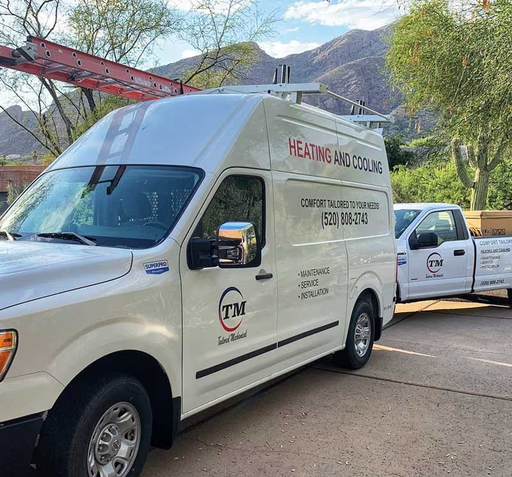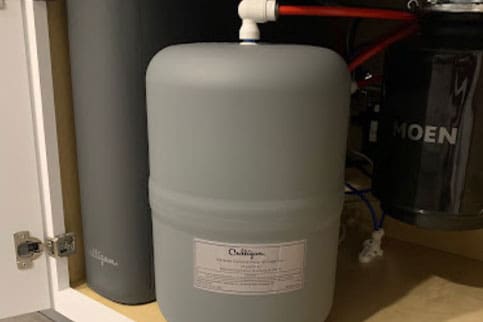Homeowners in Tucson face a unique set of challenges when it comes to maintaining their heating, ventilation, and air conditioning (HVAC) systems. With the desert climate pushing HVAC units to their limits, understanding warranty issues can mean the difference between a simple repair and a costly headache. This article delves into the intricacies of HVAC warranties, offering guidance on how Ac repair in Tucson to navigate potential issues effectively.
Understanding HVAC Warranties
HVAC warranties typically come in two main forms: manufacturer warranties and labor warranties. Manufacturer warranties cover parts that are defective due to manufacturing flaws. These warranties usually last from five to ten years, depending on the unit and manufacturer. Labor warranties, on the other hand, are provided by the HVAC contractor who performs the installation or repair work. These can vary significantly in duration but often span from one year to several years.
For residents in Tucson looking for AC repair or furnace repair services, it’s crucial to familiarize yourself with these warranty types before committing to any repairs or installations. A common pitfall is assuming that all parts are covered indefinitely. Knowing what is covered and for how long can save you from unexpected expenses down the road.
Common Warranty Issues
Warranties may seem straightforward, yet they often come with fine print that can lead to confusion. One of the most frequent issues homeowners encounter is misunderstanding what constitutes "normal wear and tear." For instance, if your air conditioning unit fails due to lack of maintenance or improper use, the manufacturer might deny coverage under the warranty, citing neglect as a reason.
Another recurring challenge involves transferring warranties when selling your home. Many manufacturers require original owners to register their products for warranties; thus, if you purchase a home with an existing HVAC system, you may lose out on coverage unless steps are taken during the sale process.
Key Points When Choosing an HVAC Contractor
Selecting an experienced HVAC contractor in Tucson plays a pivotal role in warranty management. Here are some factors to consider:
- Licensing and Insurance: Ensure your contractor has proper licensing and insurance coverage. This not only protects you during installation but also impacts warranty validity. Experience with Local Climate: A contractor familiar with Tucson's specific climate conditions understands how different systems perform under extreme heat and can recommend appropriate solutions. Service Agreements: Ask about service agreements that include routine maintenance checks. Such agreements can help keep your system running efficiently and prevent breakdowns that might void your warranty. Reputation: Research online reviews and seek referrals from friends or family members who have had similar work done in Tucson. A well-reviewed contractor will likely honor warranties more reliably than one with mixed reviews. Clear Communication: Choose a contractor who clearly explains warranty terms before beginning work. If anything is unclear or seems overly complex, it's worth seeking clarification.
Importance of Documentation
Keeping thorough documentation is essential for ensuring that your warranty remains valid throughout its term. Always retain receipts from repairs or installations along with any maintenance records. These documents serve as proof of service history should you ever need to file a claim.
When performing routine maintenance—like changing filters or cleaning coils—document each step performed along with dates and any relevant notes about system performance. This attention to detail may come in handy if complications arise later.

Maintenance Records
To maintain your warranty status effectively, create Ac repair in Tucson a dedicated folder—either physical or digital—where you keep all related documents:
Original purchase receipt Registration information for the warranty Copies of all service agreements Maintenance records Any correspondence regarding claims madeBy having everything organized neatly at your fingertips, filing claims becomes less daunting should issues arise.
What Happens When You Need Repairs?
If something goes wrong with your HVAC system while still under warranty, navigating repairs requires careful attention:
Document Everything: Before contacting anyone for repairs, gather all necessary documentation as mentioned earlier—warranty papers, receipts for past services—and take note of symptoms displayed by your system.
Contact Your Contractor: Reach out first to the company that installed your system or performed recent repairs since they should be familiar with any existing contracts associated with your unit.
Communicate Clearly: When discussing issues over the phone or email, present details concisely while sticking strictly to facts regarding what has transpired without speculating too much about causes—you want them focused on addressing solutions rather than debating blame.
Follow Up Promptly: After making initial contact concerning repairs under warranty provisions ensure follow-up occurs within a few days if no response has been received; persistence often pays off!

Seek Additional Help if Needed: If difficulties arise when filing claims through either party involved (contractor/manufacturer), consider consulting local consumer protection agencies familiarized specifically around such matters within Arizona’s jurisdictional laws governing contracts/warranties/repairs etcetera—they exist precisely because situations like this happen regularly!
Potential Costs Not Covered by Warranties
While warranties offer peace of mind against unexpected failures of essential components within HVAC systems like compressors or evaporator coils—there are still costs that many homeowners overlook that will not get reimbursed:
- Routine Maintenance: Regular check-ups fall outside standard policies; thus proactive measures such as cleaning out ducts/filters must be budgeted separately. Labor Costs Beyond Initial Installations: If additional labor beyond basic setup becomes necessary due faulty equipment installed incorrectly initially – these fees could potentially fall back onto homeowner regardless whether part itself covered. Upgrades/Improvements Made Post-Purchase: Any modifications made after purchasing equipment may void existing agreements so always check specifics beforehand!
Understanding which aspects aren’t covered helps set realistic expectations both financially & operationally going forward!
Learning from Experience
Having dealt personally with various contractors over time—including both successful outcomes as well unfortunate mistakes—it’s clear how vital proper communication & understanding contractual obligations become during these processes! For example:
I once hired an unlicensed technician who promised low rates but left my cooling system malfunctioning after just two months! Despite having paid him upfront I was left stranded without recourse due ignorance surrounding licensing requirements—an expensive lesson learned firsthand!
Conversely another time I invested slightly more into hiring reputable technician known locally; they delivered exceptional service without fail & even provided detailed paperwork regarding all aspects discussed throughout project lifecycle—which ultimately gave me immense confidence knowing my investment protected adequately!
Such stories underscore importance establishing strong lines communication alongside doing research prior selecting contractors ensures smooth sailing ahead whenever needing repairs/future upgrades done correctly!
Final Thoughts
Navigating through warranty issues surrounding HVAC repairs might feel overwhelming initially—but arming yourself properly means tackling challenges head-on rather than getting sidetracked by concerns over financial repercussions later down line! By understanding what constitutes normal wear-and-tear versus making informed choices surrounding contractors’ qualifications/documentation needs—you empower yourself tremendously against future pitfalls lurking around corners unexpectedly!
Ultimately investing time now translates into significant savings later while enhancing comfort levels inside homes across sunny Tucson year-round!
